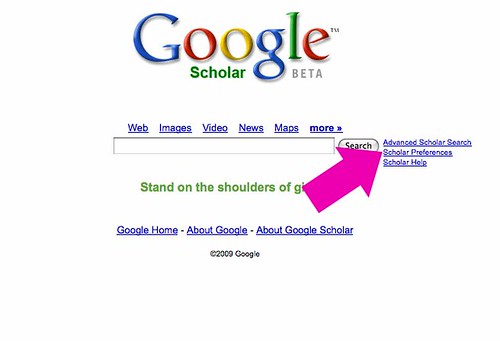You might start with Wikipedia, “the free encyclopedia that anyone can edit”, for definitions or to provide a context for the subject you are tackling. A search on “nonverbal communication” turns up (at least it did today) a two-paragraph, easy-to-read definition of the term, with cross reference hyperlinks to other subjects. Something troubling about this definition, however, is that you’ll see “[citation needed]” four times in this short text. Wikipedia’s policy is that articles should contain only material that has been published by reliable sources, and that editors adding new material should cite them—but that’s not what always happens in practice. So, should you believe what you read here? If you cite in your paper what you find in Wikipedia, will that same content be there the next time anyone looks?
A search on “nonverbal communication” in Google Scholar returns over 44,000 hits, including references to books as well as articles. One cool feature is that for books, there is a library search that allows you to type in your zip code, which will then initiate a search for the book in libraries near you. You may find that the book you need is available at Regis, or at a public library near you. The articles that turn up at the top of this search sound interesting, and are indeed from scholarly sources such as The Journal of Nonverbal Behavior and Journal of Child Psychology and Psychiatry, but these articles are dated from 1981 and 1986. In order to retrieve either article, you’ll need to go to a publisher’s web site and pay a fee—often from 20 to 30 dollars each.
So, what are your other options? Your tuition dollars subsidize both the licensing of library databases that provide the full text of the articles you need as well as interlibrary loan services that will get the articles you need from other libraries, at no additional cost.
Two library databases, Gale Virtual Reference Library and Xreferplus, provide full text articles from authoritative reference sources. For example, a search in Gale on “nonverbal communication” results in 30 hits from sources such as Gale Encyclopedia of Children’s Health, Encyclopedia of Management, International Dictionary of Psychoanalysis and Encyclopedia of Communication and Information. The same search in Xreferplus retrieves entries from American Heritage Dictionary, Mosby’s Medical, Nursing and Allied Health Dictionary, Collins Dictionary of Sociology, World of Criminal Justice and Penguin Dictionary of Psychology. In other words, these are the exact sources that Wikipedia entries should be citing—and that you should, too.
For articles on nonverbal communication, you could search in Academic Search Premier, Communication and Mass Media Complete, and PsycINFO. A search in Academic Search Premier, limited to scholarly, peer-reviewed journals, turns up 847 articles, of which 527 are full text. The 320 that are not full-text in this database may be available in another database, or can be ordered through interlibrary loan.
For books, Lumen (Regis Library catalog), Prospector (unified catalog for Colorado libraries and University of Wyoming) and WorldCat (yes, a worldwide library catalog) give you ways to figure out what’s available where, but also to directly request books if they’re not readily available to you.
Scholar Google

Scholar Google

Scholar Google

Scholar Google

Scholar Google

Scholar Google

Scholar Google

Scholar Google

Scholar Google

Scholar Google
No comments:
Post a Comment